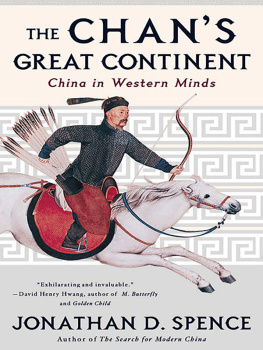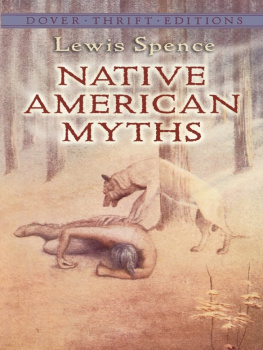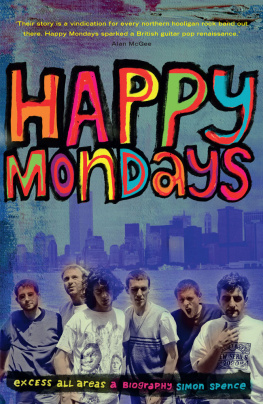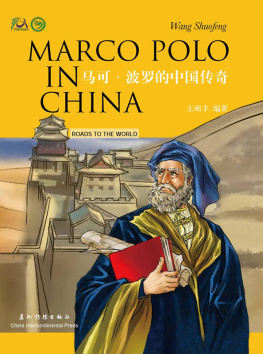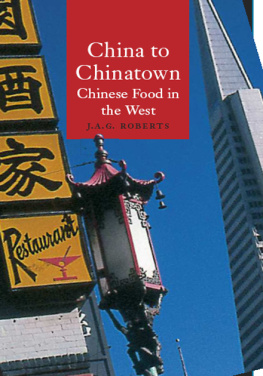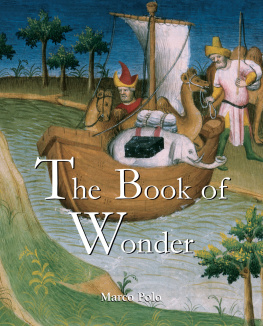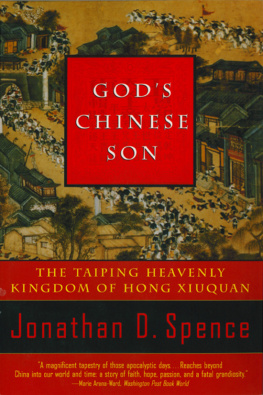Spence - The Chans great continent : China in western minds
Here you can read online Spence - The Chans great continent : China in western minds full text of the book (entire story) in english for free. Download pdf and epub, get meaning, cover and reviews about this ebook. City: New York, Array, China, year: 1999, publisher: W. W. Norton & Company, genre: Romance novel. Description of the work, (preface) as well as reviews are available. Best literature library LitArk.com created for fans of good reading and offers a wide selection of genres:
Romance novel
Science fiction
Adventure
Detective
Science
History
Home and family
Prose
Art
Politics
Computer
Non-fiction
Religion
Business
Children
Humor
Choose a favorite category and find really read worthwhile books. Enjoy immersion in the world of imagination, feel the emotions of the characters or learn something new for yourself, make an fascinating discovery.
- Book:The Chans great continent : China in western minds
- Author:
- Publisher:W. W. Norton & Company
- Genre:
- Year:1999
- City:New York, Array, China
- Rating:4 / 5
- Favourites:Add to favourites
- Your mark:
- 80
- 1
- 2
- 3
- 4
- 5
The Chans great continent : China in western minds: summary, description and annotation
We offer to read an annotation, description, summary or preface (depends on what the author of the book "The Chans great continent : China in western minds" wrote himself). If you haven't found the necessary information about the book — write in the comments, we will try to find it.
The Chans great continent : China in western minds — read online for free the complete book (whole text) full work
Below is the text of the book, divided by pages. System saving the place of the last page read, allows you to conveniently read the book "The Chans great continent : China in western minds" online for free, without having to search again every time where you left off. Put a bookmark, and you can go to the page where you finished reading at any time.
Font size:
Interval:
Bookmark:

For HAROLD BLOOM
biding the moon
Till dawn should clear that dim frontier, first seen
The Chans great continent...
Hart Crane, The Bridge

Contents

THE SHAPE AND CONTENT OF THIS BOOK REFLECT THE form in which the material was first presentedas the William Clyde DeVane lectures at Yale University in the spring of 1996. These lectures, named in memory of one of Yales great teachers who also served as dean of the college from 1939 to 1963, are customarily delivered to an audience composed jointly of Yale students and members of the general public. They are thus expected to be scholarly enough to meet some basic academic requirements, but accessible to anyone who cares to attend.
Since I delivered them, these lectures have undergone various modifications. Partly these are the inevitable changes that accompany the shift from an informal oral presentation based on notes to a finished written version. Partly they involve the inclusion of quotationssometimes fairly lengthyfrom the original works cited, since in the lectures themselves each oral presentation was supplemented by assigned readings from the relevant texts. In some cases I have made cuts in the interests of concision, and at other times additions for the sake of clarity. In keeping with the original lecture format, notation is held to a minimum. Notes are used mainly to identify quotations, and occasionally to highlight a useful supplementary source. There is no attempt to give a comprehensive bibliography for each person discussed, or of works about them. Indeed, for most of the close to fifty people included here, discussions of China formed only a fractionalbeit to me a significant oneof a given writers complete work.
Before I was invited to give the DeVane lectures, I had for some years at Yale led a small seminar in which the students and I read and discussed numerous examples of the ways that China had been refracted over time in Western minds. I would like to thank those students collectively for the range of figures they came up with, and the adventurous ways in which they explored them. Several of the sources included in the lectures came from their suggestions, including the unlikely trio of Mary Fraser, Steinbecks Johnny Bear, and Richard Nixon. The current selection of forty-eight figures is culled from a number perhaps three times as large whom we read or discussed in one way or another; many of the figures omitted had striking or subtle things to say about China and their reactions to it, and their inclusion would have greatly broadened the panorama subsequently offered in the lectures and in this book. At the same time, however, they would have threatened to compress an involved story into a catalogue, and I wished to avoid that at all costs.
Each of the twelve DeVane lectures was followed by an hour of usually lively and sometimes excitable questions and discussion, and a certain amount of thoughts derived from those sessions has undoubtedly filtered in here. The same is true of audience comments at Princeton, Peking University, and the Chinese University of Hong Kong, where I explored some of these topics. I also owe thanks to my editor at Norton, Steven Forman, whose consistent skill in asking innocent-sounding questions that are almost impossible to answer, has, I trust, smoothed many rough edges and brought more clarity to the presentation. Mei Chin, acting as roving researcher, explored the worlds of eighteenth-century British taste and French late nineteenth-century exoticism with her customary imagination and aplomb, for which I am sincerely grateful. She, along with Annping, Yar, and Maddux, ensured that bringing this book to completion was more of a joy than a travail.
West Haven
August 22, 1997

ONE ASPECT OF A COUNTRYS GREATNESS IS SURELY its capacity to attract and retain the attention of others. This capacity has been evident from the very beginnings of the Wests encounter with China; the passing centuries have never managed to obliterate it altogether, even though vagaries of fashion and shifting political stances have at times dulled the sheen. The sharpness of the feelings aroused by China in the West, the reiterated attempts to describe and analyze the country and its people, the apparently unending receptivity of Westerners to news from China, all testify to the levels of fascination the country has generated.
This book seeks to give a sense of the multiplicity of intellectual and emotional attitudes that Westerners have brought to their attempts to deal with the phenomenon of China. So as not to give too formalized or deliberate an air to this process, I borrow the title from Hart Cranes idea of China as imagined by Columbus, sensed rather than seen in the pre-dawn dimness. The Chan (or Khan) had ruled China at the time of Marco Polos thirteenth century account of the fabled land. In Columbuss mind he ruled it still. Drawing the term from the history of navigation and exploration, we would call such a moment a sighting. A sighting in those contexts was fleeting or intermittent: one seized on whatever chance one had to get ones bearings; one found oneself by the often random viewing of the anticipated destination. By extension of this idea, in gunnery the act of sighting was the act of finding the range, of getting a balance or a bracketing effect so that ones own shots would hit the target.
The sightings of China that we will be considering were passed on to others in many forms, as diplomatic reports or as poems, as stage plays or as letters home, as philosophical tracts or novels. In the course of this book we look at forty-eight such sightings in some detail, spread across a period of over seven hundred years, from 1253 down to 1985. The first of these dates marks the year that Friar William of Rubruck set off on an ecclesiastical and diplomatic mission to the Great Khan in Karakorum, and his experience feeds inevitably into that of Marco Polo, at once the most celebrated and the most problematical of all the sightings we will be considering.
The legacy of Polo lay to some extent in the data that he provided, but even more in the curiosity that he aroused. The development of printing in the West in the fifteenth century brought published versions of his earlier manuscripts into readers hands by the 1480s, and it was one of these early editions that was read and annotated by Christopher Columbus. By the 1540s, the spillover from Columbuss discoveries had brought the Portuguese to Macao and the Spaniards to the Philippines, inaugurating what can be fittingly called the Catholic century of China sightings. The reports, polemical tracts, and the novels that were written at this timewe look at five such examplesrooted China with a totally new level of specificity into Western minds, and introduced strong currents of emotion into what was becoming a heated European debate over the nature of China and its people, and over the uses to which one might put the new information.
As the seventeenth century waned, and with it the peak of the Catholic nations program of overseas conquest and expansion, the naval powers of the emerging Protestant states were ready to seize the opportunities this offered. Diplomats and soldiers from the Netherlands and Great Britain became the next group to explore China. These men saw themselves as realists, with certain tasks to perform; they viewed with a new kind of hostility Chinas attempts to force them to accept traditional forms of ritualized subservience, especially the kowtow, involving a series of nine prostrations before the figure of the emperor or even before the symbols of his authority in his absence. The British, who saw in such ritual observances an abandonment of national dignity rather than a convention of international relations, were inevitably headed for confrontation: such a passage can be traced through three of the sightings left to us across the century by Bell, Anson, and Lord Macartney.
Next pageFont size:
Interval:
Bookmark:
Similar books «The Chans great continent : China in western minds»
Look at similar books to The Chans great continent : China in western minds. We have selected literature similar in name and meaning in the hope of providing readers with more options to find new, interesting, not yet read works.
Discussion, reviews of the book The Chans great continent : China in western minds and just readers' own opinions. Leave your comments, write what you think about the work, its meaning or the main characters. Specify what exactly you liked and what you didn't like, and why you think so.

